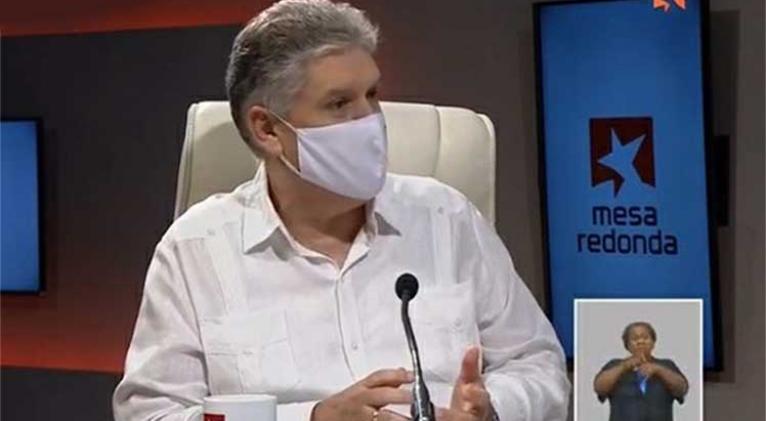Cuba's economic strategy includes from the State to private sector
especiales

In a bold political action, Cuba is assisting the private sector as part of a strategy that seeks the harmonic function of several economic actors to boost development amid the effects of the US blockade and the Covid-19 pandemic.
The Government seeks to complement between micro, small and medium-size enterprises, the state sector, the business system, cooperatives and non-state entrepreneurship, Deputy Prime Minister and Economy Minister, Alejandro Gil, explained last night at a special television, radio broadcast.
This combination of factor will favor the generation of values and expand the productive chain, main objectives of the country's economic and social strategy to face the crisis of the pandemic and the intensification of the U.S. blockade, he added.
To achieve it -he further said- Cuba is making a deep transformation of its entrepreneurial system as a result of 15 new measures that will complement 28 others taken previously.
He exemplified by saying that work is being done to remove obstacles and implement solutions, explaining that the branch, which will be subordinated to a parent company, will be created to grant it legal personality and facilitate operations.
There will be a new system to allocate hard currencies, which will be controlled by the Ministry of Economy and Finance, allowing interested parties to obtaining microcredits and benefiting from talent according to the economy.
Another measure is the creation of joint ventures with micro, small and medium-sized enterprises to boost the economy, said Gil, adding that this initiative must be promoted by the State.
Food production and marketing are keys to further boost the island's development, the Minister of Economy and Planning Alejandro added.
In this regards, he mentioned major aspects as incentives to increase production in small industries to achieve municipal self-supply. The purpose is to meet the food demand with local resources, so decisions and plans are made in that sphere.
Gil noted that sales and exports of agricultural inputs by farmers in freely convertible currencies have started in Havana, Villa Clara and Santiago de Cuba. The measure responds to financial shortages for imports.
However, it is necessary to produce more, the Minister noted. Therefore, one of the mechanisms is to sell tools to producers, even tractors and other necessary equipment.
The minister announced that Cuba will establish the Bank of Agricultural Development (Banco de Fomento Agricola, in Spanish), which will work as part of the structure of the already created Credit and Commerce Bank (Banco de Credito y Comercio, Bandec, in Spanish).
The Deputy Prime Minister referred the negative impact of 121 punitive measures taken by the Government of the United States against Cuba this that add to the damage caused by the Covid-19 pandemic.
Due to the pandemic more than 150,000 state workers are not working and a large number of non-state employees is also in that situation, in addition to a low level of economic activity for those who remained at work.
This situation is reflected in the demand for expenditures by the State and in a lower economic activity in general, Gil said.














Add new comment